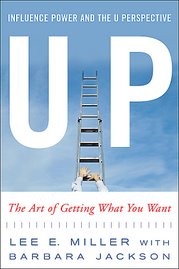
Allison Brinkman, an account manager with Eisen Management Group, a mid-size
Employers are too busy to waste their time interviewing unqualified candidates. What gets someone hired is that they are more likable, fit in better with the corporate culture, wow the interviewer with some particular success or simply focus more on what is important to the person making the hiring decision.
Before you can bowl over the interviewer, however, you have to get in the door. Most people miss out on great jobs because they are never even in the running for those positions. It is unlikely you are going to get your next job by posting your résumé on the Internet or searching the job boards.
The best way to find a good job is still through the people you know, says Paula Marks, an executive recruiter at Gilbert Tweed Associates, a national executive search firm with offices in
The people you know are the ones who will alert you to that great job, and will introduce you to people in a position to hire you. The more people you know, and the more people who think highly of you, the more likely those things will happen.
Neil Gussman, Communications Manager at the Chemical Heritage Foundation in
Networking is not just for people to whom meeting others comes naturally. Anyone can learn to network. Nancy Ancowitz, a business communication coach and creator of Self-Promotion for Introverts, a program designed to teach shy individuals how to promote their careers and their businesses, advises people to build their network by joining professional organizations, heading committees, volunteering, hosting events and writing articles on topics of interest in trade magazines and on the Internet. Instead of collecting business cards at networking events, she suggests "focusing on making one or two strong connections with people of interest to you."
"Give to your network without worrying about what you are going to get back," she suggests. Introduce people even if you've just recently met them, and tell them something they may have in common -- "I understand you're both big Nets fans." You'll be viewed as a connector, which will make people want to stay in touch with you. Most importantly, "don't wait until you need a job to begin networking," Ancowitz says. "Build relationships, and be generous with people in your circle throughout your career. That way when you need them people will be there for you."
Never underestimate the power of building relationships and being likable when it comes to getting a job. Eva Rosenberg, an accountant and the author of "Small Business Taxes Made Easy" (McGraw Hill; 2004), got her first job as an executive recruiter despite having to win over a boss who had never hired a female recruiter before, and who did not want to pay her what she was seeking.
Lee E. Miller is the author of "UP: Influence Power and the U Perspective- The Art of Getting What You Want" and co-founder of YourCareerDoctors.com, a Web site devoted to career success. During his more than 20-year career as a senior human resources executive, he has hired and promoted hundreds of employees. Send your career questions to Lee@YourCareerDoctors.com


No comments:
Post a Comment